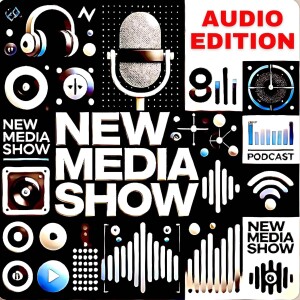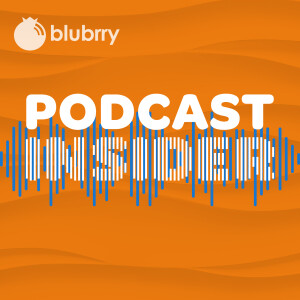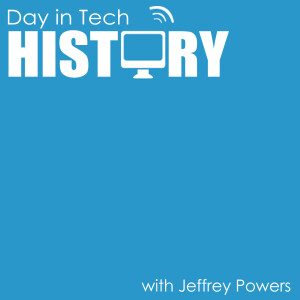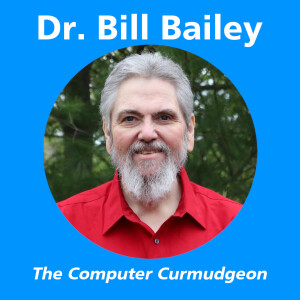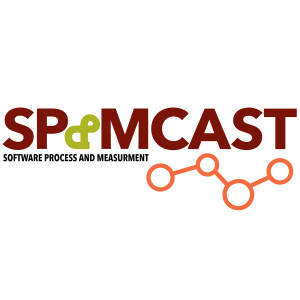

Episode List

Accountability, Responsibility, Performance, and Freedom, Essays and Conversations with Susan Parente, SPaMCAST 854
The SPaMCAST 854 features an essay on the linkage of accountability, responsibility, performance, and freedom. In our ongoing Re-read Saturday series featuring Amartya Sen's "Development As Freedom," we've found a compelling connection between Sen's insights and this week's discussion on personal accountability and performance. Specifically, Chapter 12's exploration of the interdependence between freedom and responsibility resonates deeply with the core concepts of our essay. We also have a visit from . In this installment of Not A Scumdamentalist, we discuss accountability. Mastering Work Intake sponsors SPaMCAST! Look at your to-do list and tell me your work intake process is perfectly balanced. Whether you are reacting to your work or personal backlog, it's time to learn to take control! Buy a copy of Mastering Work Intake (your work-life balance will improve). Keyan Reid bought a copy and wrote a review titled “” Links to buy a copy… Amazon (US) — JRoss — Interested in continuing the conversation on work intake with peers in a safe space? Join the Mastering Work Intake Community on LinkedIn Re-read Saturday News The fun part of reading and then rereading a book is knowing what is to come in . I am jumping to Chapter 11 for a reason that will be readily apparent. We will slide back into the order of the book next week unless real life suggests we change the order again. Sen opens this chapter by stating, “Aristotle agreed with Agathon that even God could not change the past.” We go deep after that! Previous installments of : Week 1: Week 2: Week 3: Week 5: Week 6: Week 7: Week 8: Week 9: Next SPaMCAST The SPaMCAST 855 will feature my conversation with Khurram Mir. We talked about testing, quality assurance, control, and frameworks. Effective testing is essential for the effective delivery of value.
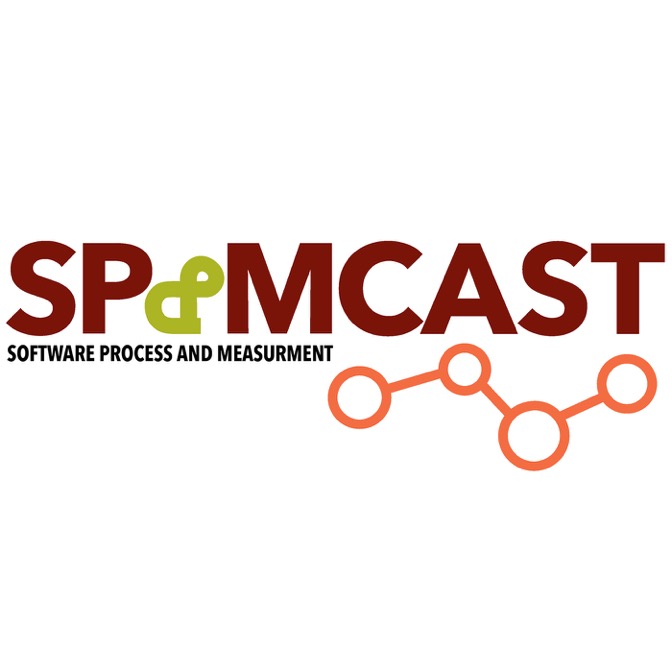
Real-time Collaboration Is Key to Success, A Conversation WIth John Conafay, SPaMCAST 853
The SPaMCAST 853 features our interview with John Conafay. CEO and Co-Founder of Integrate. John and I talked about program management in complex environments and real-time collaboration. In complex environments with multiple teams, real-time collaboration not only saves time but also saves money. John Conafay is a US Air Force Veteran and the CEO and Co-Founder of Integrate, building program management software with a systems engineering approach for the world’s most ambitious machines. Previously he was an early employee at three space unicorns – Head of BD at ABL Space Systems, was one of the first ten employees at Astranis, and Interned at Spire Global early on. He also worked at the Office of the CFO NASA Headquarters while at BryceTech and was a Director of Business Development at Spaceflight LinkedIn: Integrate: Mastering Work Intake sponsors SPaMCAST! Look at your to-do list and tell me your work intake process is perfectly balanced. Whether you are reacting to your work or personal backlog, it's time to learn to take control! Buy a copy of Mastering Work Intake (your work-life balance will improve). Amazon (US) — JRoss — Interested in continuing the conversation with peers in a safe space? Join the Mastering Work Intake Community on LinkedIn Re-read Saturday News Chapter Five of begins with a phenomenal quote by Huxley from Science and Culture “It is the customary fate of new truths to begin as heresies and to end as superstitions.” Several years ago (2008, ) I wrote an essay suggesting that radical ideas, like agile, begin at the fringes and then assimilate into the center. I wish I had run across this quote that highlights the life cycle of ideas. Speaking of heresies and superstitions, Sen reviews the impact of capitalist markets on freedom and development in Chapter 5 of , Previous installments of : Week 1: Week 2: Week 3: Week 5: Week 6: Week 7: Next SPaMCAST The SPaMCAST 854 will feature our essay on the need for personal accountability and performance. What are you accountable for? We will also have a visit from who will bring her Not A Scumdamentalist column to the podcast.

Scaling Or Allocating - Only One Is Real, Are You A Resource, Essays and Conversation With Jeremy Berriault, SPaMCAST 852
SPaMCAST 852 features our essay on scaling attention. Seth Godin's observation that attention doesn't scale highlights a crucial point: attention, like time, is a finite resource. We often conflate scaling and allocation, but they are distinct concepts. A human's capacity for focused attention is limited, regardless of how much time we spend awake. This fixed amount of attention, our "attentional budget," can be allocated to various tasks and activities. Allocation involves choosing where to direct our focus, like deciding to read a book instead of browsing the internet. Scaling, on the other hand, refers to the intensity and scope of that focus. While reading, you narrow your focus to absorb information more deeply, increasing the intensity of your attention on the chosen subject. We will also have a visit from the Evolutionary Agilist, . Mr. Berriault and I discuss the pervasive use of the term resources that allow organizations to distance themselves from people. Mastering Work Intake sponsors SPaMCAST! Look at your to-do list and tell me your work intake process is perfectly balanced. Whether you are reacting to your work or personal backlog, it's time to learn to take control! Buy a copy of Mastering Work Intake (your work-life balance will improve). Amazon (US) — JRoss — Do you want to test the water before spending part of your hard-earned paycheck? and I offer free 30-minute “office hours” sessions. In these sessions, we’ll facilitate helping to identify and create a plan to tackle one of your work intake challenges. Book time with us here: Re-read Saturday News This chapter begins with a phenomenal quote from Huxley from Science and Culture “It is the customary fate of new truths to begin as heresies and to end as superstitions.” Several years ago (2008, ) I wrote an essay suggesting that radical ideas, like agile, begin at the fringes and then assimilate to the center. I wish I had run across this quote that highlights the life cycle of ideas. In Chapter Five, Sen reviews the impact of capitalist markets on freedom and development in Chapter 5 of , Previous installments of : Week 1: Week 2: Week 3: Week 5: Week 6: Week 7: Markets, State, and Social Opportunity Next SPaMCAST The SPaMCAST 853 will feature our interview with John Conafay, the CEO and Co-Founder of Integrate. John and I talked about program management in complex environments and the impact of introducing real-time collaboration.

Accessibility Is An Ethical Issue, A Conversation With Mike Paciello, SPaMCAST 851
SPaMCAST 851 will feature our interview with Mike Paciello. Accessibility which should be a basic human right has always been a struggle and now seems even farther from reality. Mike and I talk about the definition of accessibility, the issues we face, and why this is an ethical issue not just a compliance problem. Mike Paciello is the Chief Accessibility Officer at AudioEye, Inc., where he drives advancements in digital accessibility. He previously founded WebABLE/WebABLE.TV, delivering insights on disability and accessibility technology, and authored the pioneering book “Web Accessibility for People with Disabilities.” Recognized by President Bill Clinton in 1997 for his role in the W3C’s Web Accessibility Initiative, Mike has advised the US Access Board and other federal agencies since 1992. An international leader in accessibility and usability, he also founded The Paciello Group (TPG), a leading software accessibility consultancy acquired by Vispero in 2017. Contact Information: Email: LinkedIn: https://www.linkedin.com/in/mike-paciello-1231741/ Mastering Work Intake sponsors SPaMCAST! Look at your to-do list and tell me your work intake process is perfectly balanced. Whether you are reacting to your work or personal backlog, it's time to learn to take control! Buy a copy of Mastering Work Intake (your work-life balance will improve). Amazon (US) — JRoss — Do you want to test the water before spending part of your hard-earned paycheck? and I offer free 30-minute “office hours” sessions. In these sessions, we’ll facilitate helping to identify and create a plan to tackle one of your work intake challenges. Book time with us here: Re-read Saturday News In Chapter 4 of , Sen states that value is generated based on the “freedoms a person enjoys that allows them to lead the life they have reason to value.” This leads to the postulate that “poverty must be seen as the deprivation of basic capabilities rather than merely as lowness of incomes.” The idea of observing and understanding poverty as a function of capability deprecation refocuses the reader on the process rather than just the outcome. As we noted in the last chapter, the journey matters. The argument is that without capabilities (i.e. access to education, health care, and transportation) low income is the outcome. While there is covariance (low income reduces access to capabilities) the relationship is obvious. Couple that with the point that poverty is relative to context and the data gets harder to compare region to region. Finally, without understanding which capabilities are in deficit it will be difficult to make policy decisions. Previous installments of : Week 1: Week 2: Week 3: Week 5: Week 6: Next SPaMCAST SPaMCAST 852 will feature an essay on scaling attention. Unlike many things, attention doesn’t scale no matter how hard you try. So why do people try so hard? We will also have a visit from the Evolutionary Agilist, .

Change Resistance or Apathy, More on Manipulation and Persuasion, Essays and Conversations With Susan Parente SPaMCAST 850
Several weeks ago I spent too much time in the middle of the night considering a scenario of apparent change resistance. I concluded that not everything that looks like resistance is what it appears. Rather there was a bigger issue hiding in plain sight; the concept of change indifference/change apathy. As a change leader, the difference is not academic because it impacts how to address the issue. As organizations remold themselves to address the culture and pressures of the 2020s we need to find a path to empower organizations and to improve their craft while at the same time struggling with pressures to contain costs and grow. The solution cannot merely be messaging. We also have a visit from . We discuss manipulation and persuasion from the Not A Scrumdamentalist perspective. Mastering Work Intake sponsors SPaMCAST! Look at your to-do list and tell me your work intake process is perfectly balanced. Whether you are reacting to your work or personal backlog, it's time to learn to take control! Buy a copy of Mastering Work Intake (your work-life balance will improve). Amazon (US) — JRoss — Do you want to test the water before spending part of your hard-earned paycheck? and I offer free 30-minute “office hours” sessions. In these sessions, we’ll facilitate helping to identify and create a plan to tackle one of your work intake challenges. Book time with us here: Re-read Saturday News In Chapter 2 of , the author takes a deep dive into the goals and mechanisms of development. The chapter begins by contrasting two common opposing views of the development process. The “I win, you lose” approach - highly competitive markets where the strong win through the expenditure of blood, sweat, and tears. This contrasts with a “win-win” model where development results from mutually beneficial transactions. Adam Smith described the later form of markets (I added The Wealth of Nations to my to-read list for 2025). The latter approach is conducive to leveraging ’ supportive activities such as social safety nets, political liberties, and social development. While probably imperfect, the comparison is between a laissez-faire and a managed market approach to development. The comparison is useful because it allows us to consider the clash between highly libertarian and more collective points of view on development and behavior. Previous installments of : Week 1: Week 2: Week 3: Next SPaMCAST SPaMCAST 851 will feature our interview with Mike Paciello. We discussed digital accessibility. If the web is a ubiquitous tool then everyone needs to be able to interact with as little friction as possible. Today that is a dream but it does not have to be.
You may also like
Create Your Podcast In Minutes
- Full-featured podcast site
- Unlimited storage and bandwidth
- Comprehensive podcast stats
- Distribute to Apple Podcasts, Spotify, and more
- Make money with your podcast



